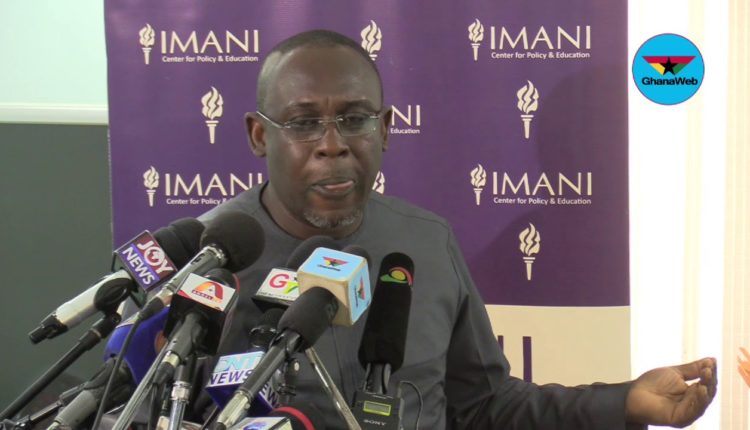Unless the government acts quickly to protect the interest of the state, Ghana may lose a $30 billion oil find to a Norwegian company, Aker Energy, IMANI Ghana has said.
The estimated 450 million to 550 million barrels of oil – found in two wells – was discovered in February and March 2019.
Early in the year, the company announced the discovery of oil in the Pecan South-1A well in the Deepwater Tano Cape Three Points (DWT/CTP) block offshore Ghana.
The find is touted as the biggest oil find in Africa.
At a forum organized by civil society group, IMANI-Ghana, its Vice-President Kofi Bentil argued forcefully that the find is being claimed by Aker Energy without a legal basis.
Aker Energy acquired the 51% stake in an earlier well in the area found by another Norwegian company Hess Oil.
Hess Oil operated under a Petroleum Agreement with the government of Ghana signed in 2006 which granted the company seven years within which to undertake oil exploration in a given area, the Contract Area.
This Exploration Period ended in 2013.
Kofi Bentil argues by the laws governing oil exploration and production in Ghana, any oil find made outside of the exploration period cannot be claimed by the company that found it – it belongs to the state.
In fact, he said, Aker Energy, having inherited the well from Hess oil at a time the exploration period had ended, was not permitted by law to continue any exploratory activities.
They were only required to do appraisal work on the Pecan find made by its predecessor company – Hess Oil.
Why were they permitted to engage in exploration in flagrant violation of the laws? Kofi Bentil wondered.
Assuming that Aker Energy accidentally stumbled on a new well in the course of the appraisal, it was legally obligated to announce this to the government for a negotiation on who controls what stake.
Kofi Bentil said that has not happened in this case.
Instead, he said, the company has claimed the new wells as though they formed part of the stake acquired from Hess Oil.
He emphasized the new wells could not be said to be part of the original well because an assessment showed that there is no dynamic communication between the new wells and the existing one. Dynamic communication is the basis for determining whether an oil find is independent of an existing one.


Comments are closed.